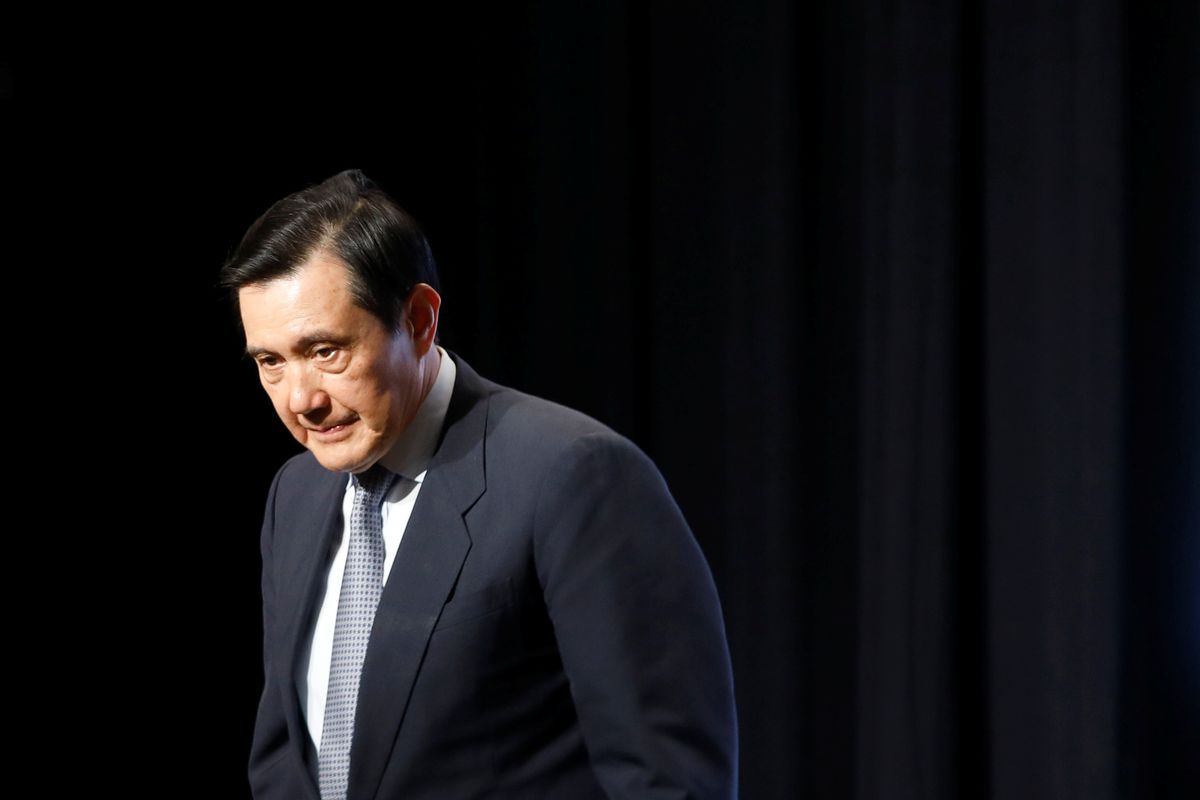Former Taiwan president Ma Ying-jeou to visit China
When he was president of Taiwan from 2008 to 2016, Ma Ying-jeou tried to promote stronger ties with mainland China.

A few minutes every morning is all you need.
Stay up to date on the world's Headlines and Human Stories. It's fun, it's factual, it's fluff-free.
The backstory: When he was president of Taiwan from 2008 to 2016, Ma Ying-jeou tried to promote stronger ties with mainland China, specifically when it comes to the economy. He actually met Chinese President Xi Jinping in Singapore back in late 2015. But, Ma's attempts at building a trade deal with China fell through after it didn't get approval from the Taiwanese people, who staged major protests.
More recently: Tensions between Taiwan and China have been heightened since then-US House Speaker Nancy Pelosi visited the island last summer. In the following months, China conducted a few live-fire drills around the region that each lasted days, and Taiwan looked to strengthen its military ties with the US. President Xi Jinping has also made a few statements about reunifying with Taiwan.
The development: News just came out that Ma will visit mainland China next week. This is a big deal because it's the first trip to the mainland by a former or current Taiwanese leader since the Republic of China government relocated to the island in 1949. But Ma doesn't plan to visit Beijing. He is bringing a delegation of academics, students and his former presidential staffers to meet with their mainland counterparts and also plans to honor his ancestors' graves. The Chinese government has said it welcomes Ma into the country and offered any necessary assistance. He is not against meeting with any senior Chinese leaders but doesn't see that as likely. The purpose of the trip is more to foster dialogue between young people.
Key comments:
The office of current President Tsai Ing-wen said it “hoped Ma, in his role as the former head of state ... can show the value of Taiwan’s democracy and freedom and the position of equality and dignity in cross-strait exchanges.”
“[Ma] strongly believes, as both sides of the [Taiwan] Strait have entered this frozen situation in recent years, allowing young people to have an exchange will help reduce tensions,” Hsiao Hsu-tsen, the director of the Ma Ying-jeou Foundation, said at a news conference on Monday. “I think no matter how many weapons we buy, it’s not as good as having young people from both sides understand each other, and deepen their exchange.”
“He’s not really representing the government to go and negotiate, I think he just wants to transmit the idea of peaceful exchange,” said Kao-cheng Wang, a professor at the Graduate Institute of International Affairs and Strategic Studies at Tamkang University in Taiwan, about Ma’s plan to bring students. “This will be helpful to cross-strait relations and future development.”




Comments ()